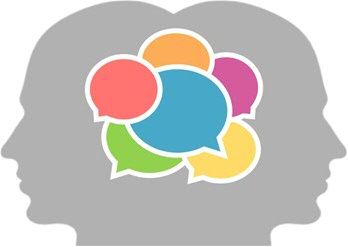Language across the Lifespan

NWO Vidi Project - Language Learning Never Gets Old. Foreign language learning as a tool to promote healthy aging
The world is aging. In Europe alone, more than 20% of citizens will be over the age of 65 by 2025. Aging is seen as “one of the greatest social and economic challenges of the 21st century” (“Ageing Policy”, 2016) and healthy aging research is put high on the research agenda. The vast majority of healthy aging contributions come from health and medical sciences. In a lab on bilingualism and ageing, researchers actively incorporate humanities insights into healthy aging studies.
Researchers
-
Prof. Dr. Merel Keijzer (Director of the Lab Bilingualism and Ageing) researches how bilingualism effects modulate aging, either in individuals who are already bilingual to varying degrees before reaching advanced age but I also look at the question what introducing a bilingual experience in the form of foreign language learning in third age learners does to seniors’ cognitive and social aging
-
Dr. Ellie Harding has a PhD in cognitive science and her research topics include rehabilitative possibilities for music. She recently started a project at the Center for Language and Cognition, investigating cognitive function and psychosocial wellbeing in older adults with hearing loss, specifically the cumulative effects of music-making and third-language learning.
PhD Projects
-
Floor van den Berg assesses how the acquisition of new skills (i.e., language learning, learning to play a musical instrument, and participating in a lecture series) affects cognitive functioning in seniors. Specifically, we investigate the effects on the cognitive flexibility and well-being levels of seniors with Mild Cognitive Impairment (MCI) or subjective memory complaints vis-à-vis their neurotypical peers. This is achieved through adopting experimental approaches such as eye-tracking, questionnaires and neuropsychological testing
| Last modified: | 22 August 2024 11.00 a.m. |
